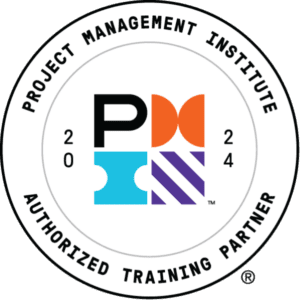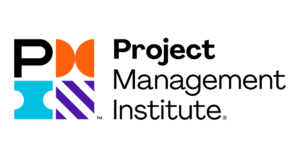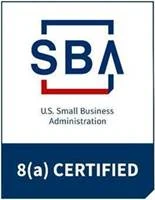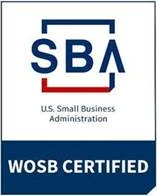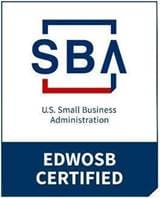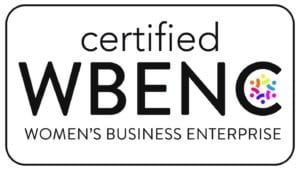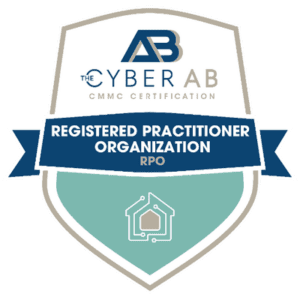Earning your Project Management Professional (PMP) Certification through the Project Management Institute (PMI) can enhance your project management skills. Additionally, it can increase your credibility as a project manager, which can lead to better job opportunities, higher salaries, and more professional growth. However, you may have come across some myths about the PMP Exam that might be holding you back from taking it. But don’t worry! Our experts, Dr. Jonathan Reed, Dr. Lane Cohee, and John Sanderson have taught thousands of students for the PMP Exam. In this article, they debunk common myths to help you approach your PMP exam confidently.
MYTH #1: I have to memorize processes, inputs, tools, techniques, and outputs to pass the PMP exam.
JOHN SANDERSON: The truth is, the current PMP Exam is more principles-based than process-based.
EXPERT TIP: Instead of trying to memorize a vast amount of information, you can think of the topics and a scenario-based question related to that topic to help you answer questions.
MYTH #2: The PMP Exam only tests predictive, aka “waterfall,” development approaches.
DR. LANE COHEE: In reality, the current PMP Exam now represents around 50% predictive and 50% agile/hybrid approaches
EXPERT TIP: Ensure your PMP preparation includes the entire range of project development approaches.
MYTH #3: The PMP Exam is an adaptive style test, meaning your response to one question determines the remaining questions that will be provided to you.
JOHN SANDERSON: In reality, the PMP Exam questions will be static during the exam, though each test will have a unique set of questions.
EXPERT TIP: With countless potential questions, a best practice is to take several practice tests with a variety of questions to help prepare.
MYTH #4: I have to feel 100% ready to pass before I schedule my PMP Exam.
DR. JONATHAN REED: The PMP covers a large body of knowledge and you will probably never feel 100% ready for the exam.
EXPERT TIP: It’s a pass/fail exam, so strive for 75% or more consistently on your practice exams before scheduling your PMP.
MYTH #5: The PMP Exam is full of math questions, and I need to memorize many formulas.
JOHN SANDERSON: Understanding what the formulas mean are more important than doing calculations.
EXPERT TIP: Review formulas in relation to what it tells you about the project.
MYTH #6: The PMP exam basically just tests the PMBOK Guide.
DR. LANE COHEE: The current test follows the Exam Content Outline (ECO) which references at least 10 separate source documents, including the PMBOK Guide
EXPERT TIP: Ensure your PMP exam preparation covers the entire authorized training material by taking the prep with a trusted company.
MYTH #7: I have to wait until I complete an Exam Prep class to schedule my test.
JOHN SANDERSON: You can submit the application any time, provided you meet the criteria specified by PMI.
EXPERT TIP: You have up to a year to schedule your test from the time your application is approved. Waiting to apply could cause delays if you are selected to be audited. Complete the application process so then you can control when you want to schedule your exam. Schedule your exam here.
About the Experts
 Dr. Jonathan Reed, DBA, PMP has over thirty years of experience in the defense industry in engineering, program management, and executive leadership roles. He is founder and president of Strategy First, a management consulting firm helping organizations with strategic planning, management processes, and talent development. Dr. Reed is also an Assistant Professor at Florida Tech’s Nathan M. Bisk College of Business where he teaches courses in strategy and program management. Previously, he was Vice President of Strategy and Business Development at Harris Corporation where he led growth for the $2 billion Government Communications Systems Division (GCSD).
Dr. Jonathan Reed, DBA, PMP has over thirty years of experience in the defense industry in engineering, program management, and executive leadership roles. He is founder and president of Strategy First, a management consulting firm helping organizations with strategic planning, management processes, and talent development. Dr. Reed is also an Assistant Professor at Florida Tech’s Nathan M. Bisk College of Business where he teaches courses in strategy and program management. Previously, he was Vice President of Strategy and Business Development at Harris Corporation where he led growth for the $2 billion Government Communications Systems Division (GCSD).
 Dr. Garret Lane Cohee, DBA, PMP has over 30 years in the defense and aerospace sector, most recently serving as an executive business leader at Harris Corporation. His research interests focus on organizational development, strategy, leadership, and operations, with an emphasis on project/program management. As a business practitioner, Dr. Cohee served as executive committee chair for both emerging talent development and program management. He also served as an adjunct faculty instructor in the field of project management at Embry Riddle Aeronautical University from 2008-2009 and currently teaches at Palm Beach Atlantic University.
Dr. Garret Lane Cohee, DBA, PMP has over 30 years in the defense and aerospace sector, most recently serving as an executive business leader at Harris Corporation. His research interests focus on organizational development, strategy, leadership, and operations, with an emphasis on project/program management. As a business practitioner, Dr. Cohee served as executive committee chair for both emerging talent development and program management. He also served as an adjunct faculty instructor in the field of project management at Embry Riddle Aeronautical University from 2008-2009 and currently teaches at Palm Beach Atlantic University.
 John Sanderson, PMP, PgMP, PfMP, PMI-ACP, DASSM, SCPM has over 30 years of experience in executive leadership roles in banking/financial services, software development, logistics, government, and manufacturing information technology environments on a global scale. He currently provides expert program management consulting to a variety of government and industry clients. A lifelong learner, Sanderson has earned many certifications from the Project Management Institute (PMI). Annually, he instructs hundreds of professionals each year on project management, risk management, change management, and related courses.
John Sanderson, PMP, PgMP, PfMP, PMI-ACP, DASSM, SCPM has over 30 years of experience in executive leadership roles in banking/financial services, software development, logistics, government, and manufacturing information technology environments on a global scale. He currently provides expert program management consulting to a variety of government and industry clients. A lifelong learner, Sanderson has earned many certifications from the Project Management Institute (PMI). Annually, he instructs hundreds of professionals each year on project management, risk management, change management, and related courses.
About Alluvionic’s PMP Exam Prep
PMI-PMP® EXAM PREP
Alluvionic hosts PMP Exam Prep Courses for individuals seeking to earn their PMP or CAPM credentials. This course is offered both live and virtually with training materials and practice exams included in the cost. View courses on Alluvionic’s website and follow Alluvionic on LinkedIn for upcoming courses.
Course Details
Alluvionic invites you to gain a deep expertise in core project management competencies as you prepare for the PMP® and/or CAPM® examinations.
35 PDUs: Ways/Working 19, PowerSkills 8, Business 8
Taught by a PMI® Authorized Training Partner (ATP), Alluvionic’s 5-day PMI-PMP® Exam Prep Course covers project management principles and best practices, as well as exam preparation strategies and techniques, to provide the skills and knowledge to successfully pass the PMP® Certification exam. Students will acquire a toolbox of project management forms, methods, and analyses and apply it to projects through multiple exercises during the course, which all will aid in gaining an understanding of the PMI® Project Management Model including all knowledge areas, process groups, and individual processes. Upon completion of the course, students will be able to professionally manage projects of low-to-moderate complexity using proven tools and methods consistent with the PMI® global standard for projects and be ready to pass their CAPM® and/or PMP® examinations.


